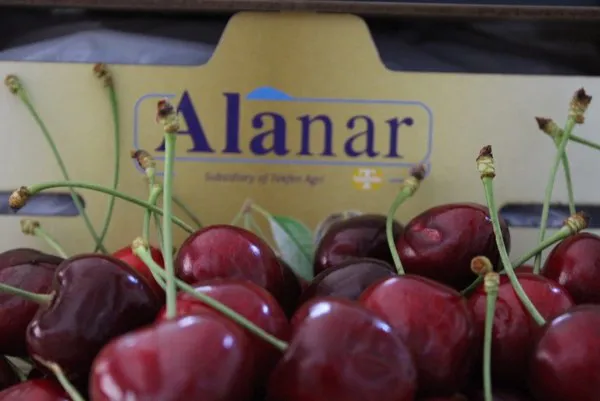 After a couple of years of low volumes during the cherry season, Yigit Gokyigit, commercial coordinator for Alanar, thinks this is finally the year that turns it around: “We expect a higher volume of cherries in Turkey this year, compared to the last couple of years. Last year, 2022, was very challenging for all the growers and exporters in Turkey, since the crop was extremely low. It was probably one of the lowest harvest of the country in the last decades.”
After a couple of years of low volumes during the cherry season, Yigit Gokyigit, commercial coordinator for Alanar, thinks this is finally the year that turns it around: “We expect a higher volume of cherries in Turkey this year, compared to the last couple of years. Last year, 2022, was very challenging for all the growers and exporters in Turkey, since the crop was extremely low. It was probably one of the lowest harvest of the country in the last decades.”
Currently the Turkish produce exporter has to procure cherries from other growers as they don’t grow enough volumes themselves just yet, but soon the company will be able to fully rely on its very own cherries, Gokyigit explains. “Since 2018, huge investments have been made for our plantations. Alanar currently owns over 600 hectares of orchards, and approximately 200 hectares of it are used for cherry cultivation. The majority of our cherry trees are still not fully productive. Therefore, we buy most of our cherries from our contracted growers at the moment. We expect our cherry orchards to be fully productive in about five years, at which point we’ll be able to harvest above 1,800 tons of cherries annually.”

A few months ago, the country suffered from a terrible sequence of earthquakes. Gokyigit is still sad about it all, but does not think the cherry season will be majorly impacted by this terrible event. “The earthquake in Turkey was a very dramatic incident for the whole country, and it still hurts us deeply. However, when it comes to the impact of the earthquakes on the cherry season, I don’t think there will be any direct impact at all. The cherries that are exported are mostly grown in other regions in Turkey.”
European demand for cherries hasn’t been great, but this year seems to have been going better already, before the season even started, Gokyigit states: “Although demand on cherry was decreased after the pandemic, especially in Europe, we see more demand again this year. Our cherries are popular all around the world and we expect to expand our sales in Europe, Pacific Asia, South Asia and Middle East due to the demand we've already received before the season even starts.”
“When it comes to the European market, Turkey competes mostly with Spain. In terms of competition, the price is one of the key elements for European consumers in making a choice for a product. Many traders and supermarkets in Europe aim to have Turkish cherries specifically, because of their unique and intense flavor. Ziraat 900 is the major cherry variety that Turkey exports. In addition to Ziraat 900, Alanar also grows Regina variety cherries in its own orchards, which is a very well-known variety, with a long shelf-life, highly demanded by Alanar’s customers. Overall, we expect to have a good cherry season together,” Gokyigit concludes.
For more information:
Yigit Gokyigit
Alanar
Mobile: +90 549 804 87 56
Email: yigit.gokyigit@alanar.com.tr
www.alanar.com.tr
